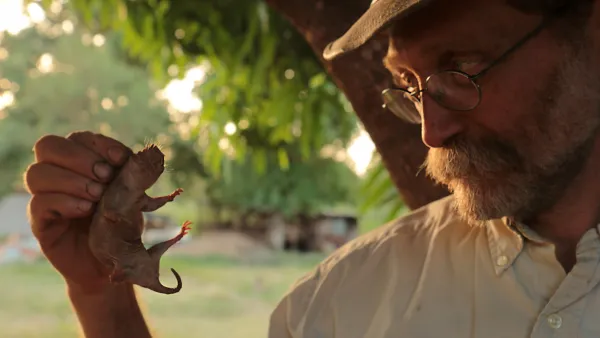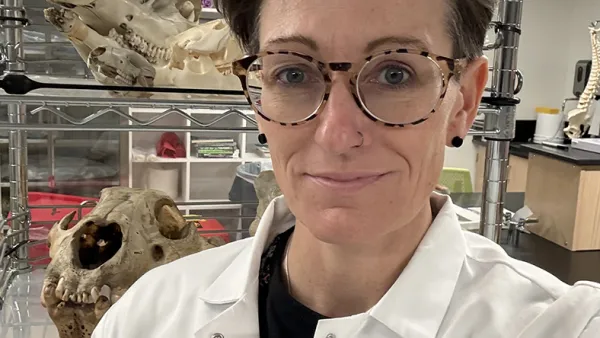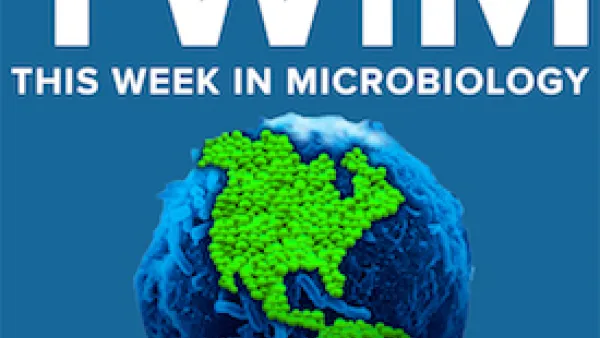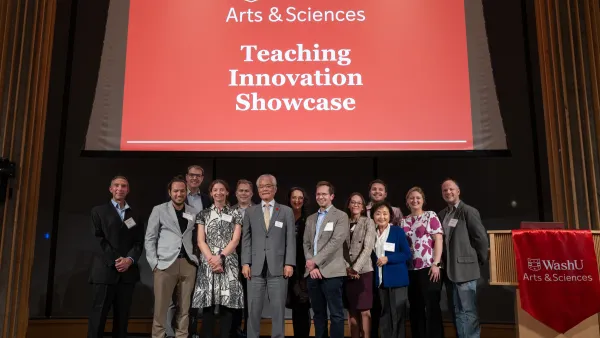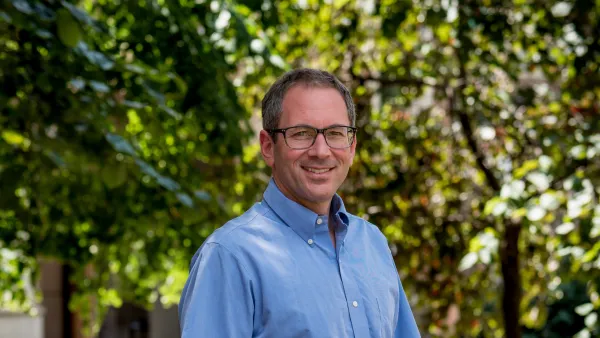You may not remember crossing paths with Stan Braude, professor of the practice of biology, in the hallways of the biology buildings. He blends in perfectly in his natural habitat of McDonnell Hall, where professors are known for their unassuming nature and neutral-colored attire.
Enter his office, however, and the modest man with glasses and a beard will transport you all over the world. The bison dung, the cervical vertebrae of a giraffe, and an assortment of rodent traps he designed for mole-rats, tuco-tucos, and giant pouched rats will further enrich your experience. A 15-minute question about the day’s lecture will easily turn into a two-hour conversation.
You might learn about the time he bought polarized sunglasses to avoid getting cataracts when doing research at the Equator. Or about his fieldwork in Kenya studying naked mole-rats.
Braude is not just an approachable professor with fascinating stories. He is also a talented teacher who instills in his students the skills that they need to prepare them for life outside of Washington University.
It is no surprise then that Braude was awarded the Arts & Sciences Distinguished Teaching Award. This award was established in 2014 to recognize faculty who demonstrate exceptional teaching and have had an impact on students.
Braude is ever deserving of this award – an award he is receiving because he was nominated by numerous students. The impact he has had on the students he has taught and mentored over the years is impossible to measure. Here are some of their stories.
A professor and a human
Sometimes students face difficult situations. When churches were bombed in Sri Lanka on Easter Sunday this past April, one of Braude’s former students was distraught.
“My mom works for the World Bank in Sri Lanka. Her office is directly next to where one of the explosions happened – it was a mess,” the student recalled.
At the time, the student was taking Braude’s Anatomy and Physiology course. She had decided late in her undergraduate career that she was going to pursue medical school. She knew this course would be critical for her career plans; she was working extra hard to do well in the class. But that day, she needed the day off.
“I went to Dr. Braude and told him I was not feeling okay today, and I needed time off. He sat down with me and talked about it with me,” she recalled.
Braude genuinely cared. And he listened to his student, who was concerned about her mother’s safety.
Braude’s students feel comfortable sharing with him because Braude has proved to them that he is not just their professor; he is human.
“He sees students as his equals which allowed you to have a real relationship with him. But it doesn't in any way jeopardize the fact that you have so much to learn from him. Those two truths exist at the same time,” said Grace MacArthur, Class of 2021.
“He sees students as his equals which allowed you to have a real relationship with him. But it doesn't in any way jeopardize the fact that you have so much to learn from him. Those two truths exist at the same time,” said Grace MacArthur, Class of 2021.

MacArthur is currently a junior majoring in Sociology. She took Braude’s Missouri Natural Heritage course her freshman year. The course involves lectures, seminars and camping trips to different parts of Missouri. She learned a lot about Missouri – about the urban bee population in St. Louis, about flooding and even about the German history of Missouri.
The so-called “camping class” can be a lot of fun – but some days can feel a bit long, too. MacArthur remembers one trip to Sam A. Baker State Park, where students gathered with Braude at the campfire in the evening, after a particularly cold and challenging day.
“We were all a little bit done with the day. And he was joking. I was waiting; I needed the payoff. And suddenly we got to the punchline, it was like, oh my god, it's like the ultimate dad joke,” recalled MacArthur.
It was just what the class needed – a bad dad joke – to take the edge off.
Getting it right
Braude continually reflects on what he says to his students during his classes. And when he thinks he may have offended someone with something he said, he corrects his mistake with great thought and care.

Alison Leslie, Class of 2017, took Braude’s Advanced Wilderness Medicine course. She recalled the time Braude lectured on using Skin Color, Temperature and Moisture (SCTM) to assess vital signs on people.
Braude taught the students to look for pink skin color in light-skinned individuals. He made sure to include that in individuals with darker skin, skin color should be assessed by looking at the inner lip.
He returned to class the next day having had reflected on what he said and apologized to the student who may have felt uncomfortable or singled out by his comment.
He did not apologize because a student complained about what he said. Nobody complained. His apology was motivated by his reflection of how his words that day could have affected his students.
“Dr. Braude taught me to take ownership of how I act. He also showed me the importance of recognizing the impact of my actions in addition to my intentions,” said Leslie, who was an anthropology and psychology double major and also served as a Teaching Assistant (TA) in Braude’s Anatomy and Physiology courses.
“Dr. Braude taught me to take ownership of how I act. He also showed me the importance of recognizing the impact of my actions in addition to my intentions,” said Alison Leslie, Class of 2017.
Braude relied on his TAs to provide him with feedback on the exams and quizzes that he was planning to give to the students.
“Even though the questions were very clear to him, he understood that they may be read or perceived differently by other people,” said Leslie.
Braude was committed to writing fair exams; he valued and learned from his TAs perspectives.
“What makes him a unique teacher is his interest in learning,” said Leslie.
He welcomes the opportunity to learn from his students. When Leslie would bring in a research article she found interesting, Braude would listen and learn from her with enthusiasm.
And when he could not answer a student’s question, Braude would figure out the answer for the following class.

“He wants to get the right answer rather than give an easy answer because he is curious and values that everybody understands everything truthfully,” explained Nick Kosinski, Class of 2019.
To ensure that Braude taught the truth, he pursued diverse learning opportunities. One summer he became a licensed Emergency Medical Technician (EMT) – that is after a total of 200 hours of class time.
The man who once quietly pulled out a trout while standing chest-deep in a river was now riding with the Clayton fire department and performing shifts at the Emergency Department at Barnes Jewish Hospital.
Braude places no limits on the learning opportunities he pursues. He is purely motivated by his commitment to enriching the learning experience for his students.
And because many of his students are applying to medical school, that summer he committed to learning more about the clinical aspects of what he teaches in his courses.
Purposeful encoding
Through his lectures, Braude prepares his students for the next stage of life, when they leave Washington University to pursue their careers.
“His class gave me more confidence in myself as a student and the student I need to be before I can be a physician,” shared Kosinski, who struggled in his Biology courses until he learned how to study in Braude’s Anatomy and Physiology course.
“His class gave me more confidence in myself as a student and the student I need to be before I can be a physician,” shared Kosinski, who struggled in his Biology courses until he learned how to study in Braude’s Anatomy and Physiology course.
Kosinski is currently working as a Physician Facilitator at Total Access Urgent Care and preparing his applications for medical school.
“One of my favorite things to do is bounce ideas off of the physicians I work with,” Kosinski said. “A lot of those ideas that I have in the clinic are based on the things I learned in Stan’s class. He laid the right knowledge foundation on which I can now build.”
His student’s success stems from their ability to remember the content years after the final exam.
“There are things I still remember from the class years and years later. His class was taught structurally similar to many of my humanities classes. He emphasized that it was never about memorizing. I never memorized in that class, and I did very well,” shared Leslie who also took Braude’s Anatomy and Physiology course.
Instead, he engaged his 50-person class in a discussion when a student had a question. It may have only taken him a minute to answer the question, but he chose to have his students answer each other’s question, even if it took up more class time.
“He wanted us to answer the question ourselves. He encouraged purposeful encoding. He made it possible to understand and recall complex biological pathways,” said Kosinski.
And when it came time to learn how to read scientific literature, Braude found a way to present this challenging task in a unique and fun way.
You probably wouldn’t have guessed it from the course title that in The Biology of Dog Breeds course students learn to read scientific literature. But that is exactly what they do – while also learning about dogs!

Each week students would bring in a scientific article about the dog breed they chose to research. They discussed it with the Braude, their classmates, and Joe. That’s St. Bernard Joe. Yes, you read correctly. Braude would bring his over-sized dog to participate in class!
Joe’s role in the course was carefully plotted. Joe serves as a test subject on whom students reproduce the methods described in published experimental articles. Joe’s presence also made the student’s first experience in communicating difficult scientific concepts a lot less daunting.
And Joe was highly successful.
“Everyone told me that this was the coolest class at Washington University. It is. I highly recommend it to everyone,” exclaimed Aiyana Riddihough, who graduated this past May and took the course as a freshman. She still has the teacup that Braude gave to each student at the end of the class.
Better students, better people
Braude would let Joe take all the credit. He is that type of person.
The type of person who will never show off all the unique experiences he has lived. The type of person who genuinely cares when students face challenges in their lives, is mindful of how his words affect others, and extremely curious to learn new materials and skills to further enhance his student’s learning experience. The type of person who is impacting his student’s lives.
“I truly believe that getting to know him through his courses has made me not only a better student but also a better person,” said Leslie.
“I truly believe that getting to know him through his courses has made me not only a better student but also a better person,” said Leslie.
